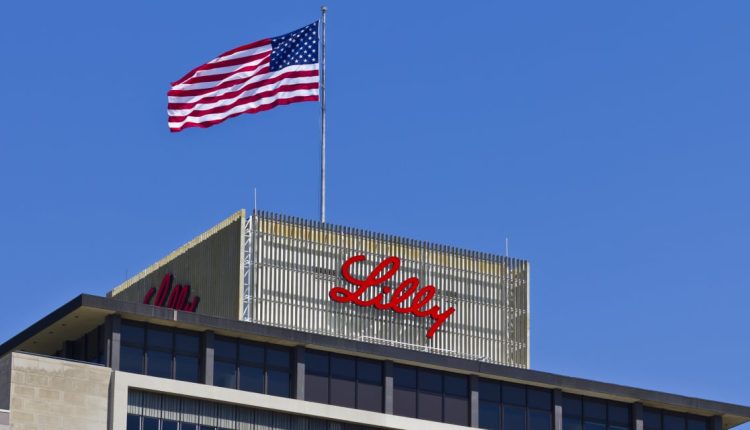Eli Lilly
stock was rising Thursday after the drugmaker beat estimates for third-quarter results but dramatically slashed its full-year earnings outlook on the back of a deal spree.
Lilly (ticker: LLY) reported earnings of 10 cents a share on revenue of $9.5 billion in the third quarter. Analysts surveyed by FactSet had expected a loss of 18 cents a share on revenue just shy of $9 billion—so investors would be right to smile at the solid beat.
What disappointed was the outlook. Lilly slashed its guidance for full-year earnings to a range of $6.50 to $6.70 a share, having raised its outlook in August to a range of $9.70 to $9.90.
The company said the reduced outlook was largely due to in-process research-and-development charges acquired in the third quarter as a result of Lilly’s deals to buy of DICE Therapeutics, Versanis Bio, and Emergence Therapeutics.
“Lilly had another strong quarter in Q3 as Mounjaro and Verzenio continued to gain momentum,” David A. Ricks, the group’s chairman and CEO, said in a statement. “Lilly executed on business development priorities in the third quarter including multiple acquisitions that expand our already robust pipeline.”
Like
Novo Nordisk
(NVO) and Ozempic, Lilly has a blockbuster weight-loss drug in Mounjaro, which has been approved to treat Type 2 diabetes and is expected to soon gain approval as an obesity treatment.
Results from Novo Nordisk on Thursday showed the group is having to restrict supplies of some doses, which could allow Lilly to gain market share. Mounjaro has been a key driver of growth for Lilly, and continued that trend in the third quarter, contributing $1.4 billion to overall revenue, up from $187 million in the same period last year.
There remains a compelling bull case for Lilly and Mounjaro. While shares in Lilly initially tumbled more than 2% in premarket trading on Thursday, the stock rebounded to gain 1%. Investors are likely looking past the slash in guidance—really, a cost of doing business and investment in future growth—and looking ahead to the opportunities in weight-loss drugs.
Write to Jack Denton at [email protected]
Read the full article here

